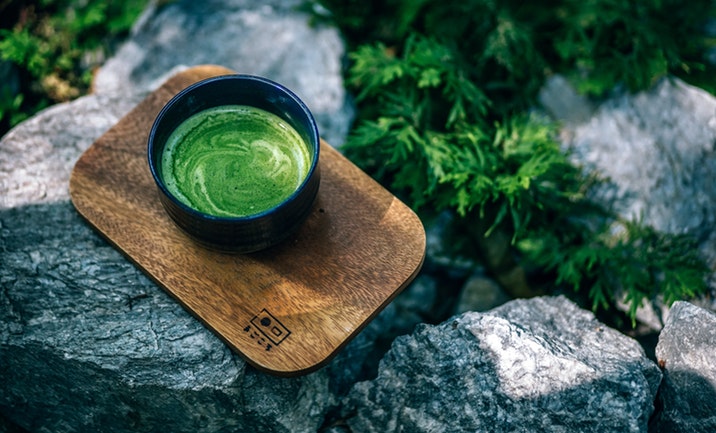The simple answer is – BOTH. When it comes to green tea vs. coffee, the two contain different amounts of caffeine, packed with antioxidants. Even though both coffee and green tea have a significant amount of caffeine, a cup of green tea has 26mg while a cup of coffee contains 150mg of caffeine.
Effects Of Caffeine
For hundreds of years, caffeine has been consumed in different studies it’s been tested for its potential benefits and risks. Because of its effects on the nervous system, caffeine is known as an upper (stimulant) and is usually used to boost concentration, alertness, and athletic performance.
Caffeine can lead to increased dehydration and urination as it’s a diuretic. Caffeine can also be used in medications for appetite, pain relief, headaches, and asthma.
How Much Is Caffeine Present In Green Tea?
Green tea does contain caffeine, but if you drink it regularly, you are still receiving a small dose of caffeine. In eight-ounce of herbal tea, there is around 25 mg of caffeine, which is about half the amount of caffeine that is in black tea. Nonetheless, this is still more substantial than decaffeinated tea, which is around 2 to 5 mg of caffeine per cup. Be careful when consuming green tea lattes or iced green tea as it can be loaded with extra sugar – meaning more calories.
How Much Caffeine Is Present In Coffee?
An average coffee cup – contains 8 ounces of coffee which have around 165 mg of caffeine. That’s more than three cups of green tea. Ideally, its best to limit yourself to a maximum of 400 mg of caffeine per day. Consuming a decaffeinated coffee gives you around 2 to 5 mg of caffeine, so a 16-ounce latte has around the same number of caffeine as compared to 8 ounces of coffee.
Green Tea vs. Coffee: Health Benefits
Tea drinkers and coffee drinkers will always be in a brawl claiming their favorite beverage is the healthiest. But when it comes down to facts, research shows that both drinks offer essential health benefits.
Health Benefits Of Coffee
- Prevents Type II Diabetes – Consuming coffee regularly prevents severe diseases like type II diabetes. Scientists have conducted a meta-analysis of around 20 studies to get an insight about why coffee consumers are at a lower risk of diabetes. Researchers believe the caffeine element of coffee supports to constraint insulin resistance. The research showed that for every cup of coffee used up, contributors proved a 7% less chance of developing diabetes.
- Boosts Physical Performance – Caffeine increases the levels of epinephrine in your blood. As a result, you have increased levels of quicker response and energy when it comes to physical activity. Research shows that caffeine can boost physical performance by 13% on average. This advantage is specifically valuable for stamina exercises where higher adrenaline levels assist in pushing through the long periods of continued activity.
- Contains Essential Nutrients – Coffee has naturally occurring compounds such as potassium and manganese. These nutrients help assist organ functions and fight off viruses and colds. Coffee contains 12% recommend daily amounts of vitamins B. Just a few cups of coffee, and you are well on your way to consuming the right amounts of nutrients and vitamins.
Health Benefits Of Green Tea
- Improves Brain Function – Green tea not only makes you alert, but it also makes you smarter. The key active ingredient in green tea is caffeine which is a well-known stimulant. It does not contain as much caffeine as there is in coffee but has enough to produce a response. Caffeine blocks an inhibitory neurotransmitter in the brain called Adenosine; this increases the firing of neurons and neurotransmitters such as dopamine and norepinephrine. Caffeine has been studied intensively in the past and has consistently led to improvements, including mood, memory, and concentration.
- May Prevent Cancer – Uncontrolled growth of cells causes cancer. Cancer is one of the leading causes of death today. It is a known fact that oxidative damage has a contribution to developing cancer, and antioxidants may have a protective effect. Green, as written earlier, contains many powerful antioxidants and therefore helps to reduce the risk of cancer. Many other observational studies have shown that people who drink green tea are less likely to develop various types of cancers.
More Benefits
- Weight Loss – As we know by now that green tea can boost the metabolic rate in the short term, it can therefore also help in losing weight. Many studies have shown that green tea helps decrease fat in your body, especially in your abdominal area.
- Prevents Heart Disease – Cardiovascular diseases which include heart disease and stroke are the most significant cause of death. Studies have shown that green tea can improve some of the risk factors responsible mainly for these diseases. These factors include LDL cholesterol, triglycerides, and total cholesterol. Green tea also raises the antioxidant capability of blood which guards the LDL cholesterol particles against oxidation, which is a part of the way to heart disease.

